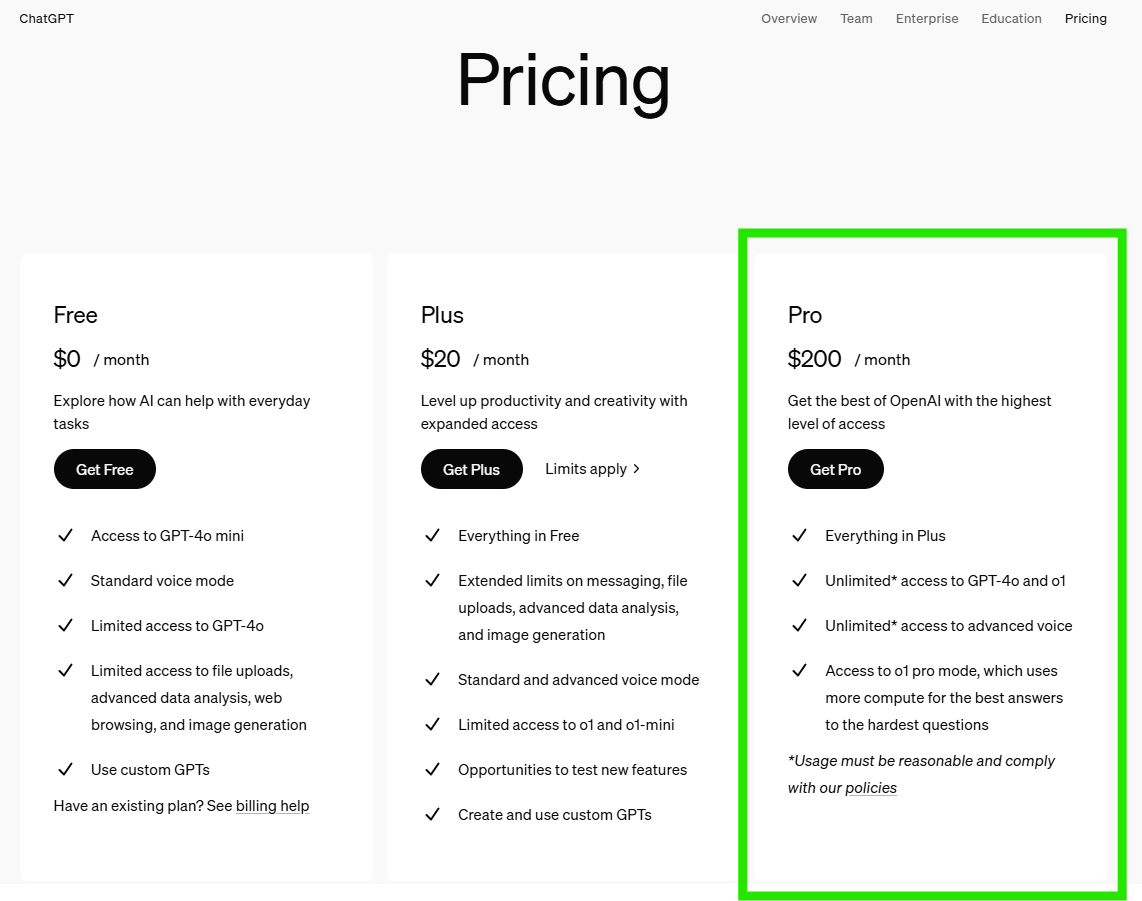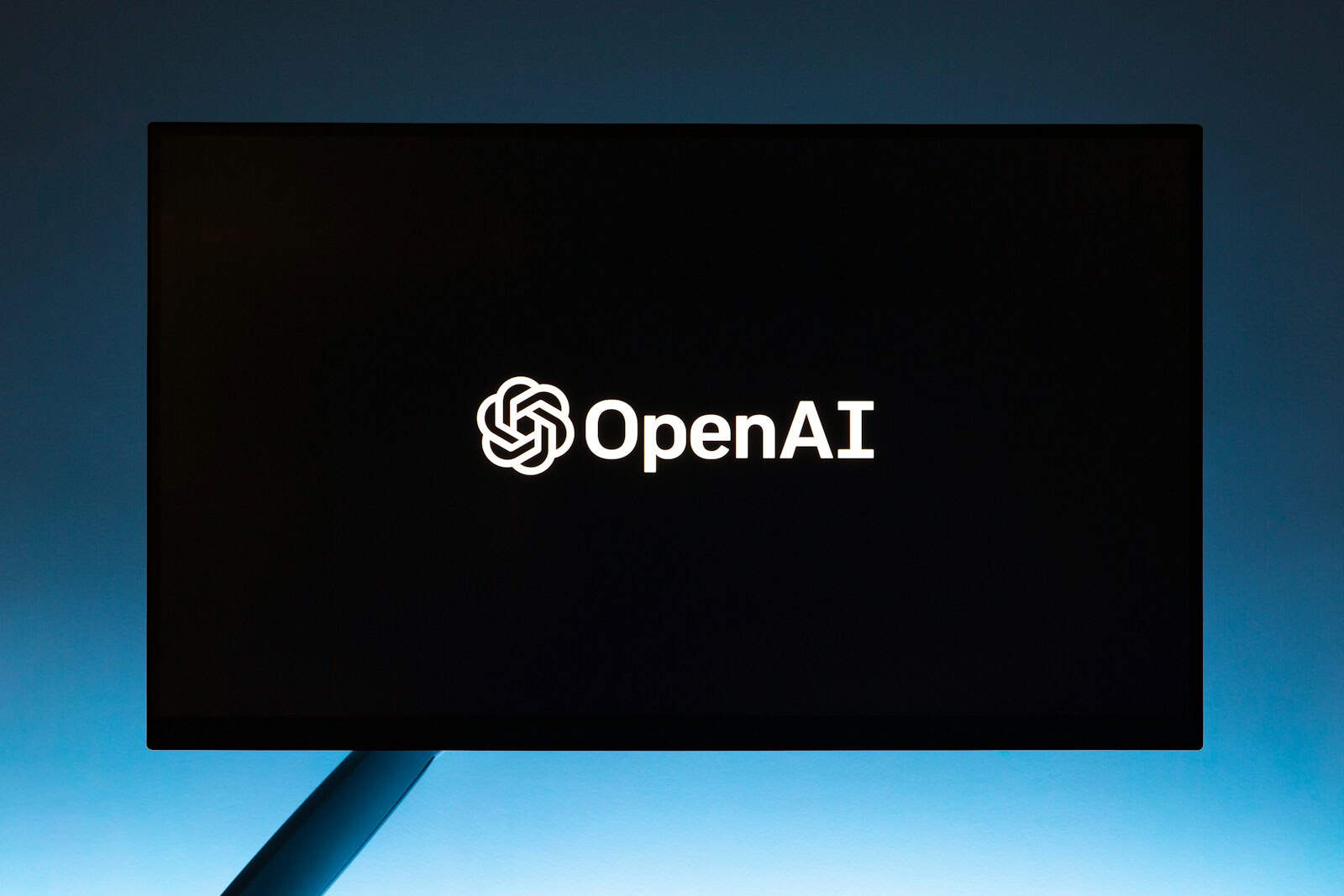OpenAI’s ChatGPT Pro plan, priced at $200 per month, is facing unexpected financial challenges. CEO Sam Altman revealed that the company is currently losing money on these subscriptions due to high usage rates. Users are utilizing the service more extensively than OpenAI anticipated, leading to increased operational costs that exceed the subscription revenue.
This situation highlights the complex balance between providing advanced AI capabilities and managing the associated computational expenses. OpenAI’s flagship AI model, ChatGPT, requires significant computing power to operate, which translates to substantial daily costs. The company’s commitment to delivering high-quality AI services has resulted in a financial predicament that calls for strategic solutions.
OpenAI is now exploring options to address this issue, including potential price adjustments for the Pro plan and restructuring efforts. These measures aim to ensure the sustainability of their services while maintaining the quality and accessibility that users have come to expect from ChatGPT.
Why ChatGPT Pro is Costing OpenAI a Fortune
OpenAI’s ChatGPT has taken the world by storm, offering users a glimpse into the future of AI-powered conversation. But this groundbreaking technology comes at a cost – literally. It turns out that the $200-per-month subscription fee for ChatGPT Pro might not be enough to cover the expenses associated with running this powerful language model. Let’s explore why.
ChatGPT Pricing Options: A Breakdown

OpenAI offers a range of ChatGPT plans to suit various needs and budgets. Here’s a quick comparison:
| Plan | Price | Key Features |
|---|---|---|
| Free | $0/month | Access to GPT-4o mini Standard voice mode Limited access to GPT-4o, file uploads, advanced data analysis, web browsing, and image generation Ability to use custom GPTs |
| Plus | $20/month | Everything in Free, plus: Extended limits on messaging, file uploads, advanced data analysis, and image generation Standard and advanced voice modes Limited access to o1 and o1-mini Opportunities to test new features Ability to create and use custom GPTs |
| Pro | $200/month | Everything in Plus, plus: Unlimited* access to GPT-4o and o1 Unlimited* access to advanced voice Access to o1 pro mode for enhanced performance *Usage must be reasonable and comply with OpenAI’s policies. |
Beyond the Basics: Team and Enterprise Plans
For those needing more advanced features and collaboration tools, OpenAI offers:
- Team: Starting at $25 per user/month (billed annually), this plan provides higher usage limits, shared workspaces, and admin controls.
- Enterprise: This plan offers tailored solutions for large organizations, including enterprise-grade security, expanded context windows, and dedicated support. Contact OpenAI sales for pricing details.
The Allure of ChatGPT Pro
ChatGPT Pro provides a premium experience compared to its free counterpart. Subscribers enjoy perks like:
- Priority Access: Always get the latest and greatest AI models, even during peak times.
- Faster Response Times: No more waiting around for ChatGPT to think. Get your answers quickly.
- Higher Usage Limits: Engage in more extended conversations and tackle larger tasks without hitting restrictions.
These benefits have proven irresistible to many users, leading to a surge in subscriptions and heavy usage.
The Hidden Costs of AI
While ChatGPT Pro brings in revenue, the costs associated with its operation are substantial. These include:
- Computational Power: Running large language models requires massive amounts of processing power, which translates to hefty energy bills.
- Data Storage: Storing the vast amounts of data used to train and run these models also adds to the expenses.
- Maintenance and Development: Keeping the system running smoothly and continuously improving the models requires a team of skilled engineers and researchers.
The Pricing Dilemma
OpenAI CEO Sam Altman has openly admitted that the $200 price point for ChatGPT Pro was his own decision. He had hoped it would be profitable, but the unexpectedly high usage levels have thrown a wrench in the works.
| Factor | Impact on Profitability |
|---|---|
| High Subscription Rate | Increased revenue, but also increased usage and costs |
| Intense Usage by Subscribers | Significantly higher computational costs |
| Fixed Subscription Price | Limits OpenAI’s ability to adjust pricing based on usage |
Navigating the Future
OpenAI is now faced with a tough choice: either increase the price of ChatGPT Pro or find ways to reduce operating costs. They could also explore alternative subscription models, such as usage-based pricing.
This situation underscores the challenges of monetizing cutting-edge AI technology. Striking the right balance between affordability and sustainability will be crucial for OpenAI and the broader AI industry.
The rapid advancement of AI technology has brought us tools like ChatGPT, capable of generating human-quality text, translating languages, and answering our questions in an informative way. But this progress comes at a price, quite literally. OpenAI, the company behind ChatGPT, is facing a financial challenge as the popularity of their $200-per-month “Pro” plan has led to unexpectedly high operating costs.
Key Takeaways
- OpenAI’s ChatGPT Pro plan is currently unprofitable due to higher-than-expected usage.
- The company is considering price adjustments and restructuring to address financial challenges.
- Balancing advanced AI capabilities with operational costs remains a key challenge for AI service providers.
Analysis of OpenAI’s Pro Plan Pricing and Usage Patterns
OpenAI’s ChatGPT Pro plan faces financial challenges due to higher-than-expected usage. The company’s pricing strategy and user engagement patterns have significant implications for its business model.
Cost Structures and Operational Expenses
OpenAI’s $200 monthly ChatGPT Pro plan is currently operating at a loss. The company underestimated the level of usage by subscribers, leading to higher operational costs. Data center expenses are a major factor in these losses.
OpenAI projects revenue of $3.7 billion for 2024 but expects losses of $5 billion. This gap highlights the significant costs associated with running advanced AI models at scale.
The company may need to reevaluate its pricing strategy to achieve profitability. A shift to usage-based pricing is under consideration as a potential solution.
User Engagement and Pro Plan Demand
The high usage rates of ChatGPT Pro indicate strong demand for advanced AI capabilities. Users are finding significant value in the unlimited access and priority features offered by the subscription.
Power users and professionals are likely driving this demand. They may be leveraging ChatGPT Pro for various applications, from content creation to data analysis.
The unexpected level of engagement suggests that OpenAI has successfully created a product that meets or exceeds user expectations. However, this success has created financial challenges for the company.
OpenAI must balance user satisfaction with financial sustainability. Potential solutions could include:
- Tiered pricing based on usage levels
- Limiting certain features to manage costs
- Introducing enterprise plans for high-volume users
These options could help OpenAI maintain its Pro plan’s appeal while improving its financial performance.
Impact on Research and Advanced AI Development
OpenAI’s Pro plan supports cutting-edge AI research and enhances user experience with advanced features. The plan’s financial challenges stem from its extensive use by professionals and researchers pushing the boundaries of AI capabilities.
Supporting Cutting-Edge AI Research
The Pro plan gives researchers access to OpenAI’s most advanced models. This includes the powerful GPT-4 and the O1 reasoning model. These tools enable complex problem-solving and intricate data analysis.
Medical researchers use the Pro plan to analyze large datasets and develop new treatments. AI developers leverage it to create more sophisticated algorithms. The plan’s high usage reflects its value in advancing AI research.
OpenAI continues to improve its models despite the financial strain. This commitment drives innovation in the field. The company’s losses may be seen as an investment in future AI breakthroughs.
Enhancing User Experience with Advanced Features
Pro subscribers benefit from exclusive features that boost productivity. These include faster response times and advanced voice mode. The plan also offers early access to new technologies like the video generation tool Sora.
Programmers use the Pro plan to tackle complex coding challenges. Its advanced capabilities help solve intricate problems more efficiently. The O1-mini model, available to Pro users, excels at reasoning tasks.
The enhanced AI chatbot in the Pro plan offers more accurate and context-aware responses. This improves communication and problem-solving for users. The plan’s features cater to professionals who require top-tier AI assistance for their work.
Frequently Asked Questions
OpenAI’s $200/month Pro plan raises several questions about the company’s financial model and sustainability. These FAQs address key concerns regarding pricing, operational costs, and future strategies.
How does the ChatGPT Pro pricing model impact OpenAI’s financial stability?
The $200/month Pro plan has unexpectedly led to financial challenges for OpenAI. Users are utilizing the service more intensively than anticipated, resulting in higher operational costs for the company.
This increased usage has offset the potential revenue gains from the premium subscription. OpenAI now faces the task of balancing user demand with sustainable pricing.
What are the predominant reasons behind OpenAI’s operational losses?
OpenAI’s losses stem primarily from underestimating user engagement with the Pro plan. The company’s advanced AI models require substantial computational resources to run effectively.
As Pro subscribers use the service more frequently and for more complex tasks, the associated costs for OpenAI grow. This usage pattern exceeds the revenue generated from the monthly subscription fees.
Which funding mechanisms does OpenAI rely on to support its services?
OpenAI relies on a mix of funding sources to maintain its operations. These include investments from major tech companies, venture capital funding, and revenue from its various AI services.
The company also benefits from partnerships with other organizations in the tech industry. These collaborations often involve shared research and development costs.
Can increased usage of AI services lead to financial deficits for companies like OpenAI?
Yes, increased usage can indeed lead to financial deficits for AI companies. The cost of running sophisticated AI models scales with usage, often non-linearly.
If a company underprices its services or underestimates usage, it can quickly find itself in a situation where operational costs outpace revenue. This is the challenge OpenAI currently faces with its Pro plan.
What measures is OpenAI taking to ensure the sustainability of its business model?
OpenAI is likely exploring several strategies to address its financial challenges. These may include adjusting pricing structures to better reflect actual usage patterns.
The company might also be investing in more efficient AI models and infrastructure to reduce operational costs. Additionally, OpenAI could be seeking new partnerships or funding sources to support its ongoing research and development efforts.
How does the cost of running AI services compare to the revenue generated from premium plans?
For OpenAI, the cost of running AI services currently exceeds the revenue from premium plans like ChatGPT Pro. This imbalance is due to the intensive computational requirements of advanced AI models.
The company faces the challenge of pricing its services high enough to cover costs while remaining attractive to users. Finding this balance is crucial for the long-term viability of AI service providers.







